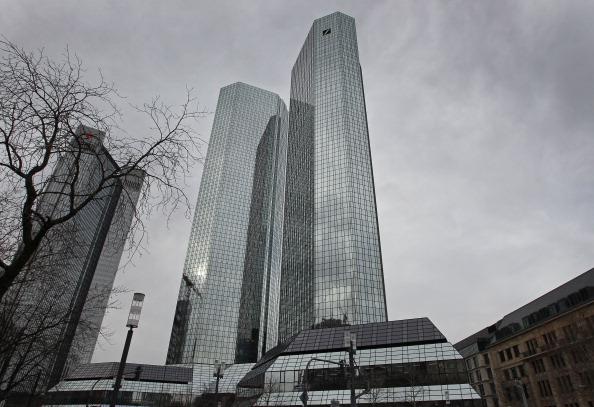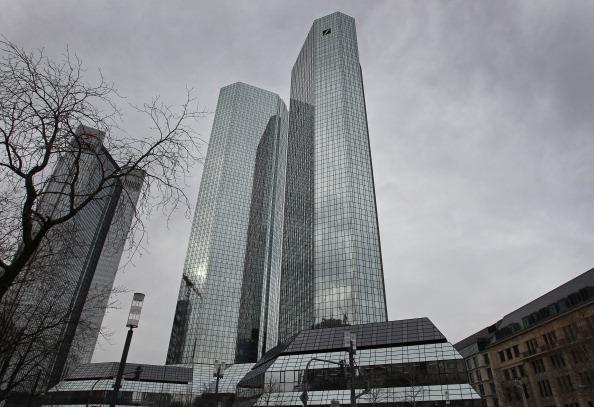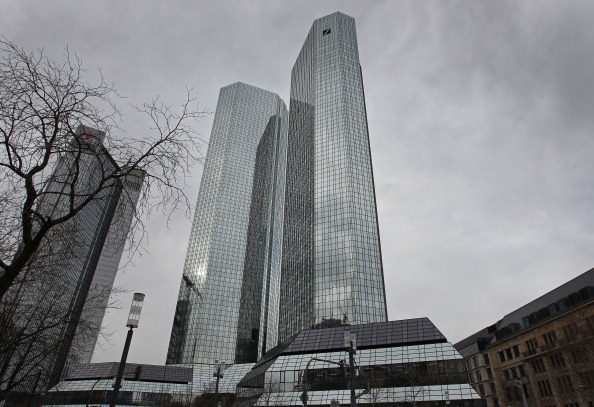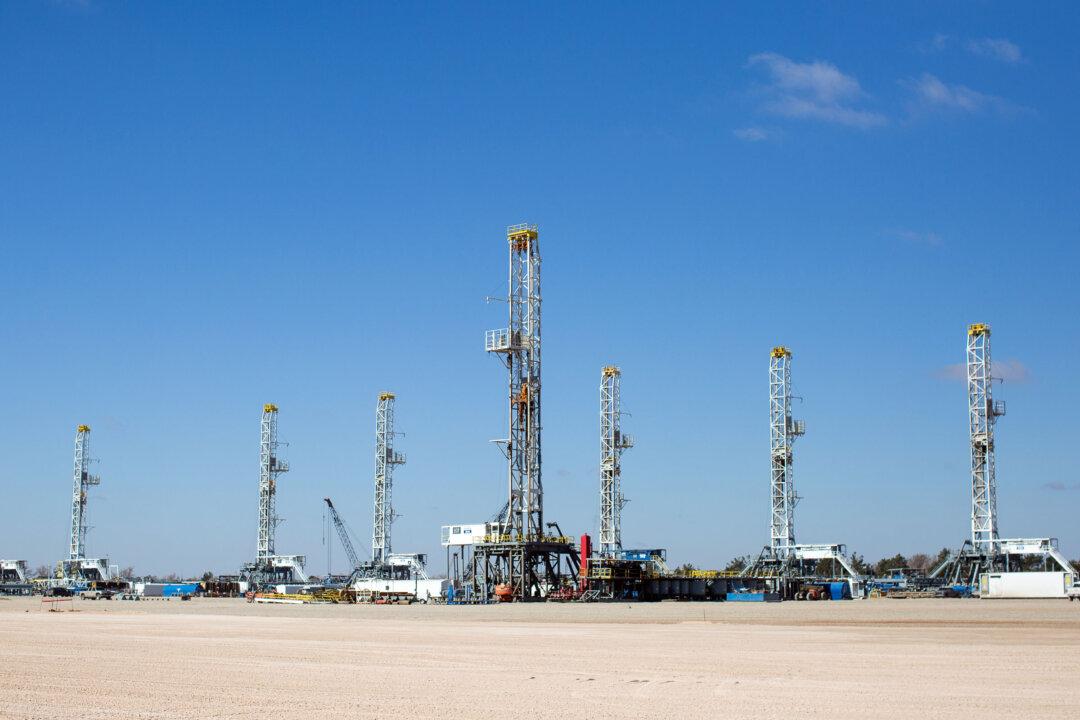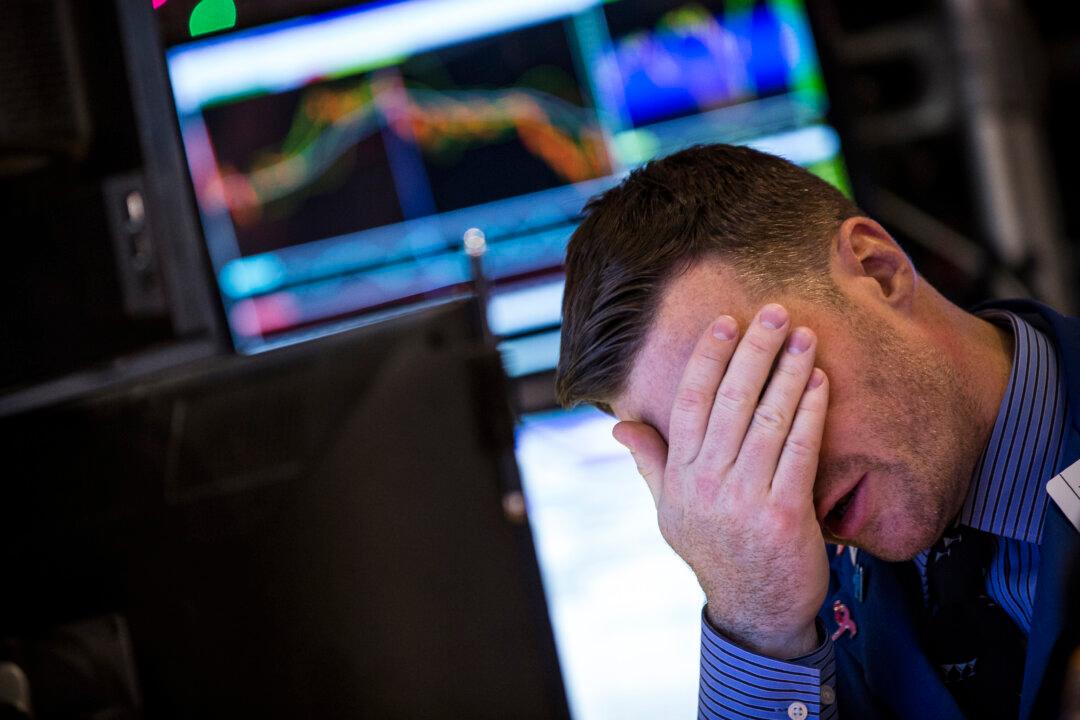Deutsche Bank is fighting hard to re-establish its reputation and clean house. After a series of scandals, the bank is planning on suing an ex-trader to reclaim $50 million of his 2008 bonus.
“As part of our ongoing internal investigation, we are evaluating all options for steps against individuals where there is proven wrong-doing by them. This may include recourse to legal process,” according to the bank’s public statement Feb 18.
A representative of the bank neither denied nor confirmed the individuals in question nor the bonus amount. German daily Handelsblatt, however, cited insiders in reporting that there is one trader in particular who might be required to give back his bonus. He was implicated in the Libor scandal and could be forced to forgo or give back his entire $100 million 2008 bonus.
The bank dismissed Frenchman Christian Bittar in 2011 after he spent 10 years with the bank trading interest rate derivatives. Insiders said that he was dismissed for colluding with traders at other banks to manipulate the benchmark interest Libor. He used the rate-setting process to boost interest rate bets he placed for the bank, according to Handelsblatt.
Official investigations in 2012 uncovered that large international banks colluded to manipulate the Libor benchmark interest rate. Libor, or London Interbank Offered Rate, is a rate that banks charge each other for overnight loans and is used to determine the yield on many consumer loans, such as mortgages.
The insiders said that in 2008, Bittar made profits for the bank in the amount of 500–700 million euros (around $668–$935 million in today’s dollars). As it was customary at the time, his bonus would total up to 15 percent of the profits—a minimum of 75 million euro ($100 million) in 2008.
As part of a recent shift in strategy, the bank now only pays out bonuses after five years—some only in the form of company stock. Because of the large losses the bank incurred in 2008, Bittar walked away with only one-half of the $100 million, with the rest being scheduled for later payout, Handelsblatt cited the insiders.
“Upon discovering that a limited number of employees acted inappropriately, we have sanctioned or dismissed employees, clawed back the unvested compensation of employees, and will continue to do so as we complete our investigation,” according to the bank’s statement.
As Bittar is being investigated by the authorities who are investigating Deutsche’s role in the Libor scandal, it is very unlikely that he will see the rest of the bonus money. Should there be a direct implication of the former trader by German or U.K. authorities, Deutsche might even sue Bittar to get the other $50 million back. Bittar now works for the Swiss-based hedge fund BlueCrest.
But even if Deutsche gets back the purported $50 million paid out to Bittar in 2008, it will be a mere drop in the bucket. The bank has yet to settle with U.S., U.K., and German regulators for its role in the Libor scandal. The British Royal Bank of Scotland recently had to pay $612 million to settle its case with the U.S. Department of Justice, the U.S. Commodities and Futures Trading Commission, and the U.K. Financial Services Authority.
In its latest full-year earnings release in January, Deutsche, the largest bank in the world as far as total assets, set aside $1.8 billion for future legal settlements, some of which might be used to settling the Libor case.
